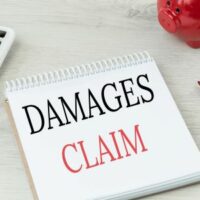Using Experts In Homeowner’s Insurance Cases

It is very common in homeowner’s insurance cases for there to be a dispute about something that requires expert testimony. Experts are common in dispute cases, but knowing which expert to use, and whether your expert’s testimony will even be admissible at all, are key things to think about before retaining an expert witness.
Why Do You Need an Expert Witness?
Experts come into play for many reasons in homeowners insurance cases. The primary area is that in most insurance cases, we are talking about construction and repair issues. The technical and construction knowledge requires someone who works in the business to testify as to whether property needs repair, why it was damaged, or whether a repair made by the insurance company is sufficient to take care of the loss you’ve suffered.
Admissibility of Expert Testimony
But not every expert’s testimony will be allowed in your case as evidence. The judge has to determine whether your expert’s testimony meets certain standards of reliability before the judge allows it to come into the case as evidence. The judge is not determining the legitimacy or truthfulness of the expert’s testimony, but rather, merely seeing if the testimony meets certain evidentiary standards.
Frye and Daubert
It was long the law in Florida that judges would apply the Frye test to experts. This was easy; the test only requires that the expert, in coming to his or her conclusions, used generally accepted scientific principles. The court looked to the expert’s methodology and as long as it was one that is used in the scientific community, the opinion itself was usually admissible.
But Florida recently changed to a harder standard (which is also used by federal courts), called the Daubert standard. Daubery requires a much higher showing to make an expert’s testimony admissible.
Under Daubert, a party must show the expert’s testimony must have been tested, have widespread acceptance in the scientific community, have an accepted error rate, and be properly applied to the facts of the case. This higher standard has some drawbacks for policyholders.
First, it allows the other side to challenge expert testimony more frequently. This can draw out a case and make it more time consuming. If an expert’s testimony is thrown out, it can severely damage an insurance claim case. Many insurance companies, aware that consumers are often desperate to get property repaired, may try to use this delay as leverage to get the homeowner to settle cases quicker, and for less money.
Of course, it works both ways: it is also easier for the policyholder to exclude the insurance company’s expert. Many insurance company experts will say anything just to refute the homeowner’s claim, something that is now more difficult for them to do under Daubert.
Make sure your homeowner’s insurance case is handled the right way. Contact the Miami property damage insurance attorneys at Velasquez & Associates P.A. today for help if your homeowner’s insurance company is treating you unfairly or giving you problems about a claim or coverage.
